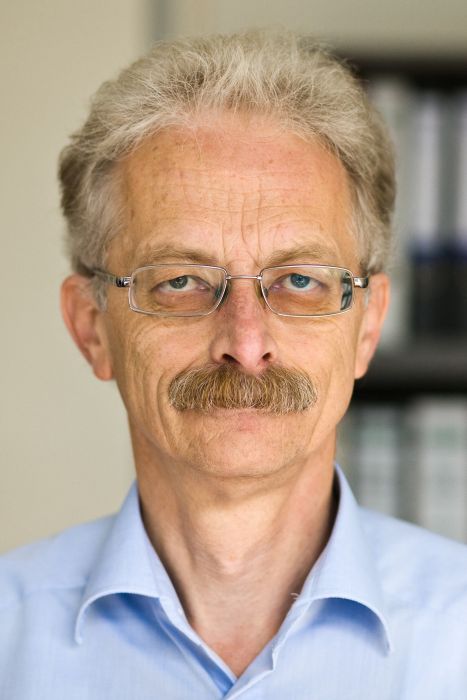07/01/2016
Print PageDKTK Tübingen: Scientific excellence opens up new possibilities for cancer treatment

Cancer is diagnosed ever more frequently today. The latest cancer statistics for Germany suggest that every second person will be affected by cancer at some point during his or her lifetime. The chances for new cures and longer survival are better now than ever before. Yet there are more than 200 types of cancer that can affect various types of tissues, and the disease takes its own course in each affected individual. This creates the challenge of tailoring treatments to be effective against the cancer found in a single patient. This is where Rammensee’s work comes in. He studies the structure of molecular peptides on the cell surface that have an important function in diseases, because they provide information about the status of the cell's health that can be read by the immune system. If a patient's cancer cells produce unique peptides that scientists can identify, it may be possible to teach the immune system to recognize them as well. This would trigger an immune response that very specifically destroys only diseased cells. Since the cells of individual patients often produce different peptides, the success of therapies will likely depend on finding markers that are unique to each case of cancer.
Many of the findings from Rammensee's lab in Tübingen have already been translated into clinical practice, including treatments based on the development of advanced cancer vaccines. Rammensee has been involved in the German Cancer Consortium (DKTK) since 2011. His main wish for the future is to find ways to accelerate the processes by which the results of research can be translated into novel types of therapies. “We need new infrastructures to ensure that findings from research reach patients as quickly as possible," he says. "This is what makes translational research in medicine so important."
Rammensee has been studying the immune system and ways that it can be used to fight cancer for almost 30 years. He has worked in the USA, in Switzerland and at the German Cancer Research Center (DKFZ) in Heidelberg, Germany. In 1996, he received a professorship for immunology at Tübingen University, where he currently heads the Department of Immunology at the Interfaculty Institute for Cell Biology (IFIZ).
The award is named for the Hamburg ship owner, entrepreneur, philanthropist and benefactor Ernst Jung, who died on January 8, 1976. He was an ardent supporter of the medical sciences and established the Ernst Jung Foundation, based in Hamburg, partly as a means of promoting biomedical research. The Foundation commemorates the anniversary of his death by naming the recipients of several major awards. On the 40th anniversary this year, two additional scientists were honored. The 2016 Ernst Jung Gold Medal for Medicine goes to Professor Peter Libby, MD, an American scientist working at Harvard Medical School. Dr. med. Sebastian Kobold, a tumor researcher and Senior Academic Assistant at the University of Munich, was named as the winner of the Ernst Jung Career Advancement Award for Medical Research. The awards will be presented at a ceremony in Hamburg on May 21, 2016.
Pictures available at:
http://www.jung-stiftung.de/de/presse-downloads/pressebilder/2016